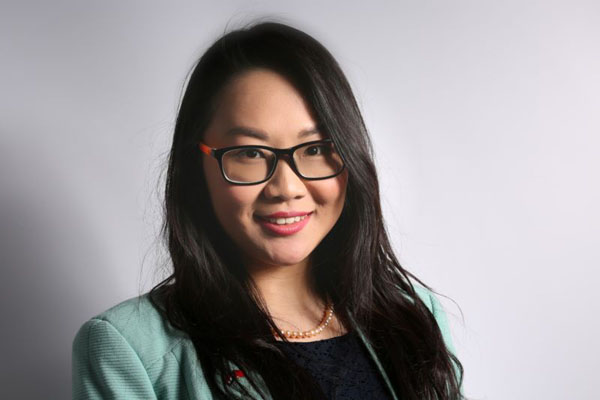 |
|
Peng Qinxuan [Photo/Provided to China Daily] |
Just take a look at what happened in the world while I was burying myself in the project of allowing the voices of professional young people be heard over the South China Sea arbitration case in The Hague.
Terrorist attacks just hit Nice, a very tranquil little city in France, and then the failed military coup in Turkey hit the headlines. On top of that, the uncertainties brought by the British vote to leave the European Union, the US presidential election, all coupled with struggling African countries and the interfered Asian harmony, are all there.
What will the world be like?
I suppose the answer lies in the hands of young people. As a representative of Chinese youth studying in western society, I have direct experience of how people in the west perceive us and vice versa.
Having traveled in more than 60 cities in 13 countries throughout Europe, I have been deeply impressed by the rich culture and history presented through architecture and museum displays. The academic setting with professional training and the international environment with colleagues from diversified backgrounds has opened my horizons and enriched my perspective. For me, the information is overwhelming each and every day.
However, communication is not always mutual. What we know about the west is disproportionately far more than what the west know of us. Chinese people are often stereotypically seen as reserved and shy, even mysterious and unpredictable.
This mostly attributed to the teaching of Confucius that "a man of integrity acts smart but speaks cautiously."
Teachers in master class will find Chinese students good at homework, but less impressive during class debates, which are simply not part of our culture.
Indeed, we Chinese find it amusing and innovative when the presidential candidates debate fiercely over political issues and deliver public speeches on their political beliefs.
This is not the way to do politics in China. To speak on a platform to attract attention is not always the proper thing to do in the Chinese context, especially when you are not senior enough.
So we kept quiet when we started work on an open letter to the South China Sea panel three months ago. We polished our wording at least ten times before it took shape shortly before the tribunal announced the ruling on 12th July.
We concluded in the 12-page open letter that this was a political drama instead of a professional arbitration.
To my utmost surprise, I have received much encouragement from senior professors and practitioners in the field, including one professor of law from Cambridge University, after the news about the open letter spread domestically and internationally.
Within 24 hours, the full text of the open letter received nearly 10,000 hits on our WeChat platform. More than 70 other student associations and media, including the Los Angeles Post, have publicized the full text. Our websites, established under volunteer help, have attracted over 20,000 signatures on line within several hours. It was an unexpected hit.
Our team, composed of PhD candidates and Masters students in international law from all over the Netherlands, received instant attention from domestic and international media.
Now the award of the tribunal has been issued, and our understanding of the case has also been delivered to the world. Some people ask, what is the use of your letter knowing that the result would not change anyway?
Well, I have to say that it is the categorical imperative of a scholar to do research and to let the voice be heard, no matter that it will make a change or not.
But undoubtedly, we indeed have made a difference by stirring people's interests in this case, calling for attention to international law, spreading our understanding of the situation, and engaging over millions of people in this action. It is no longer our open letter. It has become the open letter of millions of people.
This maybe the end of the arbitration, but it signified a beginning of professional youths' participation in global governance, using our courage and our knowledge, to think critically about what is considered to be authority, to challenge the mainstream thoughts, and to doubt the judicial expansion in the international society.
A true democratic international society requires the participation of young people with diversified backgrounds, with professional perspectives, and with passion and capabilities.
You will witness an increasing number of professional young people stand up beyond their own culture and comfort zone, like we do, to actively participate in the democratization process of the international community, to alleviate the existing stereotypes and bias, and to enhance cross-culture commendation and mutual understanding.
Then you will see a world with less violence and less hatred.
The author is a PhD candidate on international law at the Netherlands' Utrecht University and she initiated the Open Letter against South China Sea Arbitration, which obtained signing support from 30,000 young people across the world within two days.